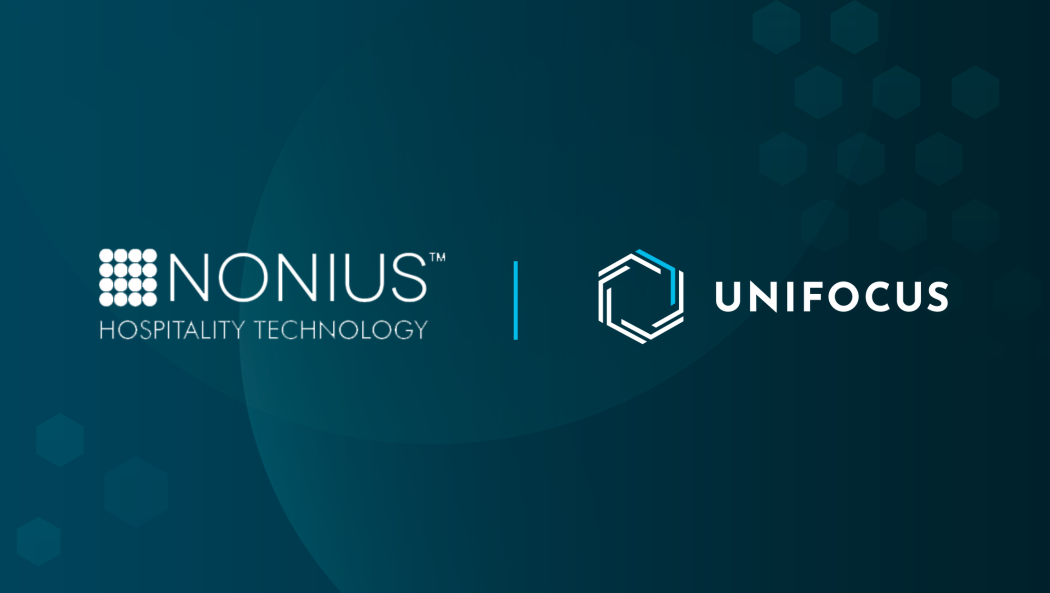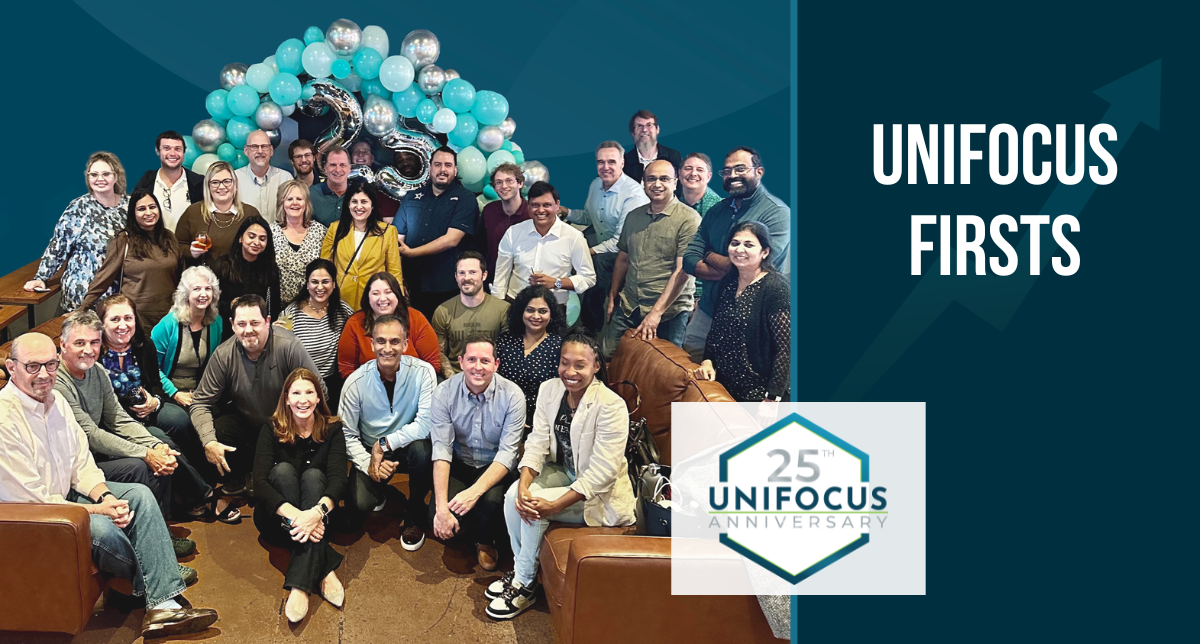August 2017 - By Mark Heymann, Chairman & CEO, Unifocus - Published in Hotel Business Review - Since millennials became the majority generation in the workforce in 2015 - and are on track to represent more than 50 percent by 2018, there has been a great deal of discussion around the challenges the generational divide poses to the boomers and Gen Xers who manage this younger cohort. Studies have scrutinized how millennials' priorities differ from those of their seniors in the workplace. They point to the millennials' desire for flexible scheduling as they strive for greater work-life balance.
Managers accustomed to playing it close to the vest are having to learn to share more information with their teams to suit the millennials' need to understand how their role impacts the organization and the community as a whole. And they are having to adjust their managerial style from a traditional top-down approach to more of a coaching role, eschewing formal annual reviews for more frequent feedback opportunities to help their millennial workers improve personal performance.
Now, as they become more deeply established in the workplace, millennials will begin to move into managerial roles themselves. And in doing so, they will find themselves in the unique position of overseeing an age-diverse workforce that spans four - and sometimes five - generations.
The 5G Workplace
An increase in the average retirement age and in life expectancy means a larger number of older Americans continue to work. While these are primarily boomers, there are still some traditionalists, also known as the silent generation, in the mix. On the other end of the spectrum, the vanguard of Generation Z has made its entry. With its oldest members currently around 24 years old, Gen Z will represent as much as 20 percent of U.S. workers by 2020.
Generational Mindsets
Each of these generations brings its own set of priorities, values and work styles to the table. And to manage them effectively, millennial managers will need to understand the mindsets of each:
- Traditionalists, the product of the Great Depression and World War II, are disciplined conformists who put a premium on loyalty and experience and embrace a hierarchal structure. While most have retired, this generation is still represented within the ranks of senior leadership and, in a growing number of cases, by those who either by choice or financial necessity have remained in or re-entered the workforce, both in full and part-time positions.
- Baby boomers are highly competitive and consider putting in long hours a badge of honor, often making sacrifices on the home front to succeed at work. Motivated by prestige of position, they have worked hard to climb the ladder and believe new entrants in the job market should pay their dues as they once did. They are the largest percentage of the present managerial group.
- Gen Xers have a strong work ethic but don't give their loyalty freely; rather, they believe their organization must earn it. They're more independent, and embrace a more casual work environment and one that is less defined by hierarchy. They are tech literate and see performance, not experience, as the key to gaining respect and organizational progress.
- Millennials are motivated by a sense of purpose. They are socially conscious and are drawn to organizations they believe make a real difference in the community. They strive for self-improvement and, to that end, seek constant feedback. Even more tech savvy than their Gen X counterparts, millennials harness the power of mobile to manage their work and personal lives on the go - all in a quest for better work-life balance. (Chip Espinoza, in his book Millennials Who Manage, proposes that a more accurate term for it is work-life blending, as millennials freely integrate both aspects of their lives - performing work tasks in their leisure time and taking care of personal business at work).
- The newest entrant in the workforce, Gen Z, shares the millennial generation's need for constant feedback and its desire for purpose. Gen Zers seek mentoring relationships and expect quick advancement. They have never known a time without the internet and are the first generation of digital natives. They give little priority to face time at the office; social media is their preferred communications channel both in and outside of work. Growing up in the shadow of 9-11, then coming of age during the Great Recession, Gen Zers are more risk averse than any generation since the traditionalists, and prioritize job safety and security.
How Will Millennials Manage?
Among the challenges new millennial managers face will be gaining the trust of older workers. Traditionalists will be inclined to focus on their lack of experience or tenure, and be wary of their tendency to change jobs often. Boomers, meanwhile, might attribute their unwillingness to sacrifice personal time to a lack of ambition and question their commitment to their career. Paying one's so-called "dues" will be a thing of the past.
That said, certain traits that have defined millennials in their early work years will serve them well as they become leaders. Espinoza asserts that this new generation of managers will put people and relationships first. Doing so could go far in helping them bridge generational divides. The continual feedback and open lines of communication they encourage will be naturally well received by Gen Zers and fellow millennials and will also help them better understand and address the needs of boomer and traditionalist workers. Millennial managers will put a premium on creating more learning and growth opportunities for employees - something that will resonate well with their mentor-seeking Gen Z subordinates. And, as natural problem solvers, they will be willing to challenge processes and chart innovative paths to success.
Managing Technology
As more millennials step into management roles, companies are going to have to seriously rethink their existing business intelligence models and decide how much information they are prepared to share throughout the organization. Not only is this cohort accustomed to feedback and information sharing, it is comfortable with - and craves- analytics. Technology is rapidly evolving to keep up with this millennial demand, producing faster systems with better data management, more dashboards and customized reports. And younger generations are embracing platforms that enable collaboration. These include private social networks like Yammer that facilitate workplace communications, giving guest- and customer-facing employees a direct feedback line to their millennial managers.
How else might millennials change the face of managing? Here are a few points to consider:
- Organizational Culture - When and how will shifts occur and what is the acceptable pace of change? As culture shifts more towards the millennial perspective, how will the Traditionalist and Boomer groups react?
- Hiring Practices - In a person-focused, team-based workplace, will millennial managers give existing employees more of a say in who gets hired to work with them? Will there be more cross interviews between potential and present employees? Will they "discriminate" generationally because of cultural fit? Will there be changes in hiring practices that focus more on organizational diversity?
- Community Involvement - With the importance they place on corporate responsibility, will millennial managers push their organizations beyond charitable donations to higher levels of community action, with the goal of driving real social change? What impact will their perspectives have on the organization's bottom line? What is the cost of increased community involvement?
- Economic Equality - Will we see a shift to more economic equality in the business environment? Will performance metrics change, and if so what impact will that have on compensation plans and profit sharing / bonus structures?
- Organizational Structure - Will the classic pyramid look more like a plateau? And if so, how will promotions occur and with what title / structure? Will teams be more fluid and titles superfluous in a more dynamically changing structure? Fundamentally, will the role of the manager change to more of a mentor / coaching style, and how will that sit with the Traditionalists and Boomers? We already recognize that this approach will probably be welcomed by the Gen Z group.
- Public vs. Private - With all of this said, will the private organization react differently than the public company as more millennials step into managerial roles?
Perhaps the biggest question of all is this: Will millennials, as they continue to age and progress in their careers, retain the mindset they had when they entered the workforce? As a person's risk profile changes over time, history has shown a tendency to growing conservatism with age. It remains to be seen if millennial managers will continue to espouse a flatter organization, share information freely, and challenge the status quo as they move into senior leadership, or if they will they become more measured, like their boomer forebears, in their managerial style.
In summary, with five different generations in the workforce and a clear shift in orientation from the present managerial approaches to those that we expect will be espoused by the new millennial manager, it remains to be seen how organizations will respond in the short and long term. No doubt, there will be interesting times ahead, and the truly flexible organization will succeed as structures change and get reshaped.
HotelExecutive.com retains the copyright to the articles published in the Hotel Business Review. Articles cannot be republished without prior written consent by HotelExecutive.com.
See the original article published in Hotel Business Review
About UniFocus
UniFocus workforce management software provides all the tools you need to make labor force decisions with confidence. We help you optimize your daily operations with powerful yet flexible tools. Empower leadership and staff to create schedules that maximize customer satisfaction while minimizing wasted labor hours. Better labor management for contingent workforces in the hospitality, restaurants, retail, and healthcare industries. If you're in the market for a better WFMS, contact us today.





